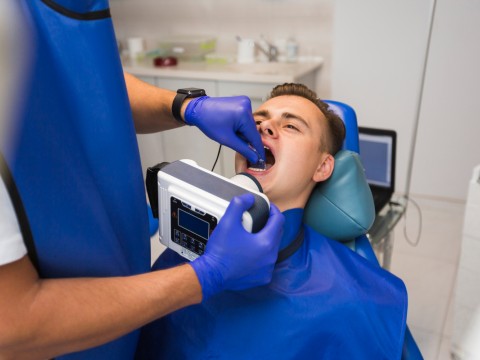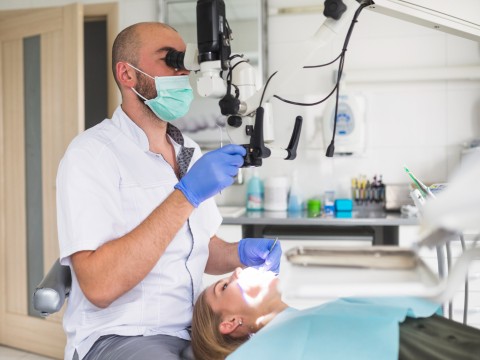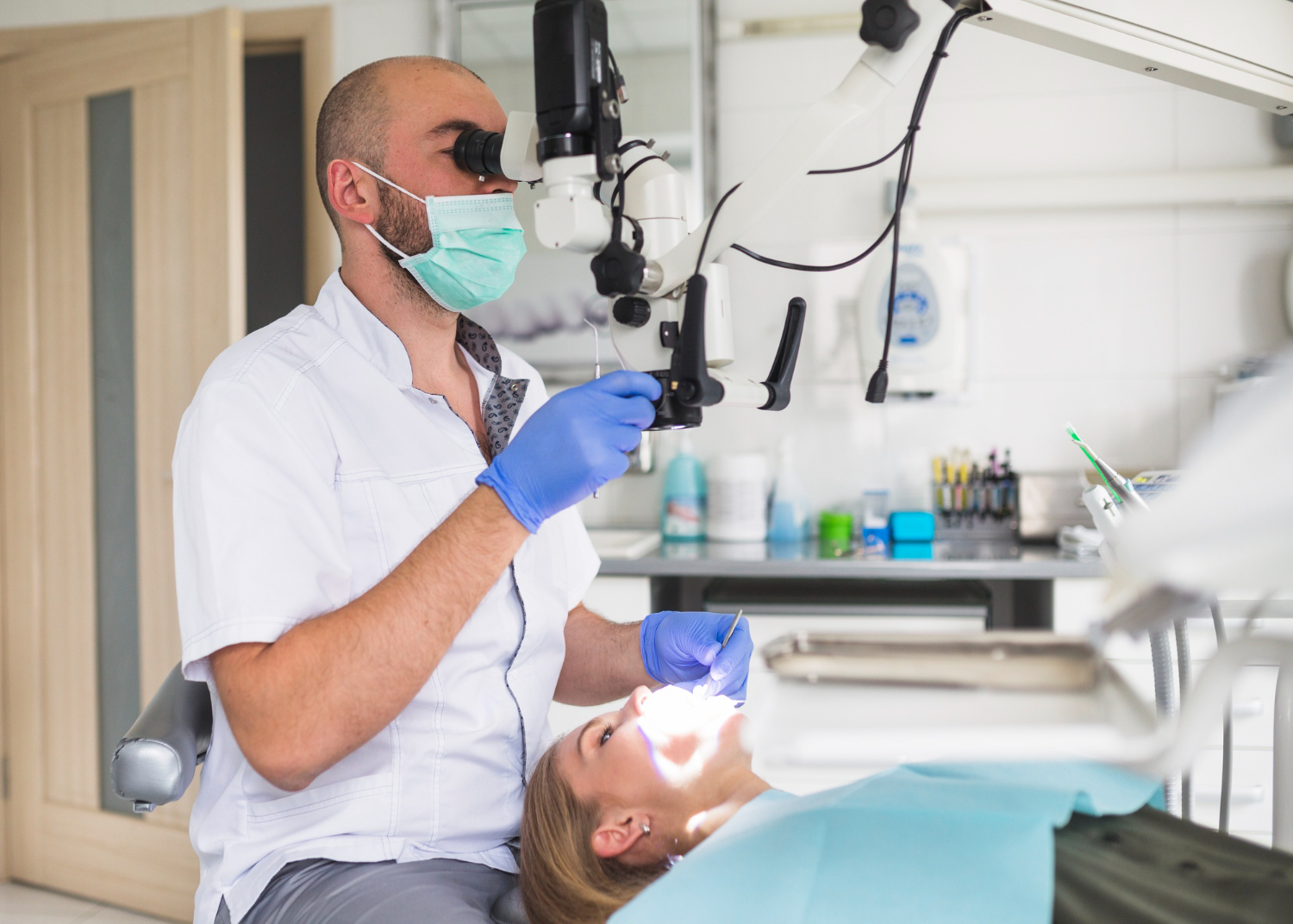Quote of Dental Zela
Root canal treatment is a dental procedure used to repair and save a tooth that is badly decayed or infected.
What Happens During a Root Canal?
Diagnosis: The dentist will take X-rays to assess the extent of the damage.
Anesthesia: Local anesthesia is administered to numb the tooth and surrounding area.
Access Opening: The dentist drills an opening in the crown of the tooth to access the pulp chamber.
Cleaning and Shaping: The infected or damaged pulp is removed. The interior of the tooth is cleaned, shaped, and disinfected.
Filling: The empty space is filled with a biocompatible material (usually gutta-percha) to seal it and prevent future infection.
Restoration: A crown or other restoration is typically placed on the tooth to restore its function and appearance.
Aftercare
- You may experience some discomfort, which can usually be managed with over-the-counter pain relievers.
- Follow your dentist's instructions for care, including any restrictions on eating or drinking.
Benefits
- Saves the natural tooth, preventing the need for extraction.
- Helps alleviate pain and discomfort caused by infection.
- Preserves dental function and aesthetics.
- All on 4 Implant
- All on 6 Implant
- Amalgam Fillings
- Bone Graft
- Composit Filling
- Dental Cleaning
- Dental Crowns
- Dental Filler
- Dental Implant
- Dental Veneers
- Detertraj (tooth stone cleaning)
- E-Max Veneer
- Endodontics
- General Dentistry
- Gingivectomy
- Gum Disease Treatment
- Gum Lift
- Hollywood Smile
- Orthodontics
- Periodontics
- Health Insurance
-
Accommodation
- Online Healthy Life Assistant 9/5
- Post - Experience Follow Up 6 Month
-
Extra Privileges

- Health Insurance
- Online Healthy Life Assistant 24/7
- Post - Experience Follow Up 1 Year
- Pre-Treatment Doctor Consultation
-
Extra Privileges
 Private
Private
- Health Insurance
- Healthy Life Butler
- Post - Experience Follow Up 1 Year
- World-Famous Doctor Consultation
-
Extra Privileges
* Price varies depending on extra and upgrade selections.
Root canal treatment involves removing infected pulp tissue due to trauma or decay, extending the tooth's functional life. Despite losing vitality, the treated tooth maintains its structure and functions like any other tooth, both aesthetically and functionally.
Deep Decay: Extensive tooth decay can cause pulp infection and inflammation, necessitating root canal therapy. Dental Trauma: Fractures or injuries to teeth may lead to root canal treatment if the pulp is exposed or damaged. Tooth Abscess: Bacterial infections within a tooth can lead to abscess formation, causing severe pain and swelling. Multiple Dental Procedures: Teeth that have undergone numerous dental procedures, such as fillings or crowns, may eventually require root canal treatment.
1. Administration of Local Anesthesia: Ensure your comfort by administering local anesthesia to numb the area around the affected tooth. 2. Accessing the Pulp Chamber: Create a small opening in the tooth to access the infected pulp and root canals. 3. Removal of Infected Pulp: Using specialized instruments, carefully remove the infected pulp from the tooth and clean the root canals. 4. Filling and Sealing: After cleaning the canals, fill them with a biocompatible material and seal the tooth to prevent reinfection. 5. Restoration: Depending on the extent of damage, the tooth may be restored with a dental crown or filling, restoring its functionality and aesthetics.
Proper post-treatment care is crucial for optimal healing after root canal therapy. Follow Prescribed Medications: Adhere to the prescribed medications as directed to manage discomfort or swelling effectively. Maintain Excellent Oral Hygiene: Regularly brush and floss to uphold oral hygiene and prevent potential complications. Avoid Hard Foods: Refrain from biting or chewing on hard foods until the tooth has completely healed. Schedule Follow-Up Appointments: Consistently attend follow-up appointments to monitor the healing process and address any concerns.
The number of sessions needed for the procedure can vary based on the tooth's condition. In cases where the tooth is alive and decay has only reached the pulp, a single session may suffice for root canal treatment. However, if the tooth is inflamed, with inflammation extending to the root tip and causing symptoms in the bone, or if facial swelling occurs due to drainage issues, the root canal treatment may be completed in 2 or 3 sessions.
Depending on the root number and type of the involved tooth, root canal treatment is within an average of 1 hour.
Modern local anesthesia applications, featuring advanced ingredients and additional additives, have significantly reduced the discomfort associated with root canal treatment. As a result, when performed with proper local anesthesia, root canal procedures are not typically painful. In cases where infection is present, mild discomfort may be experienced when applying pressure to the tooth for a few days following the root canal procedure.
A tooth that has undergone root canal treatment can last a lifetime with proper oral hygiene and regular dental check-ups.
Temporary dietary adjustments are often necessary after root canal treatment, as many individuals experience discomfort when applying pressure to the treated tooth. If the procedure extends over multiple sessions, it is advisable to avoid using the treated tooth until the treatment is complete. This precaution helps prevent pain and preserves the integrity of temporary fillings or crowns. To protect the tooth during this period, it's recommended to refrain from chewing sticky foods (especially gum) and consuming hard items (such as nuts or candy). Additionally, due to potential sensitivity for a few days, it's wise to avoid extremely hot or cold foods until the sensitivity subsides.
It can often be completed in one day, with patients typically returning to their normal daily activities within 2-3 days post-procedure.




